Stephan Busemann
DFKI GmbH
Interfacing Constraint-Based Grammars and Generation Algorithms
Aug 07, 2000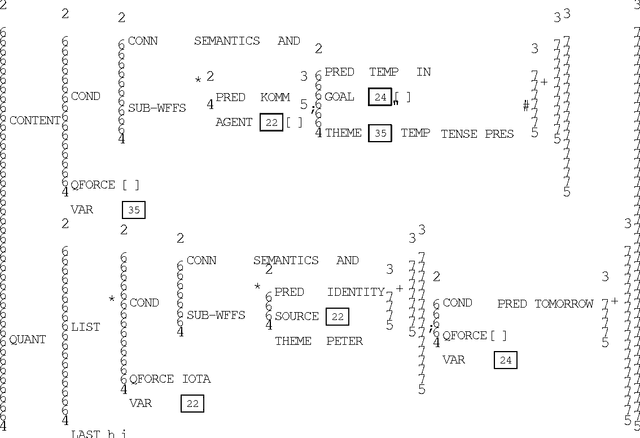
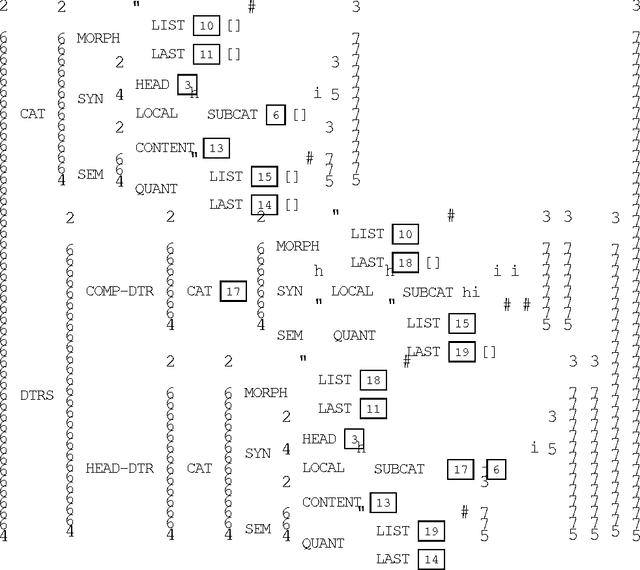
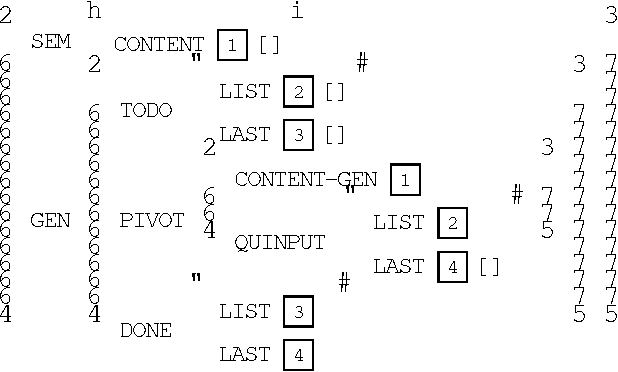
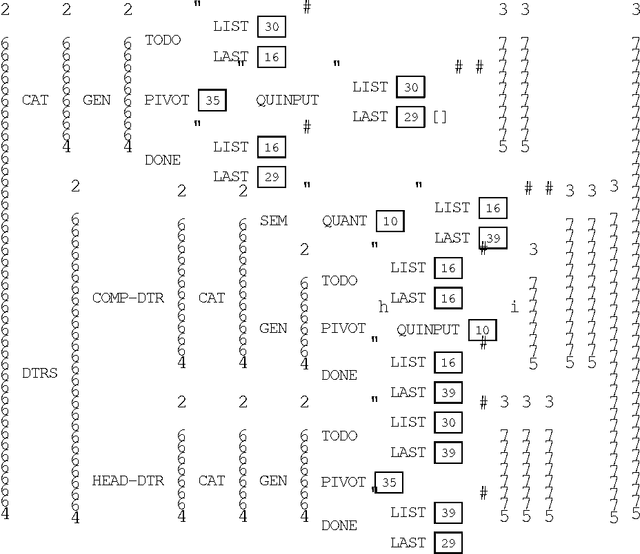
Abstract:Constraint-based grammars can, in principle, serve as the major linguistic knowledge source for both parsing and generation. Surface generation starts from input semantics representations that may vary across grammars. For many declarative grammars, the concept of derivation implicitly built in is that of parsing. They may thus not be interpretable by a generation algorithm. We show that linguistically plausible semantic analyses can cause severe problems for semantic-head-driven approaches for generation (SHDG). We use SeReal, a variant of SHDG and the DISCO grammar of German as our source of examples. We propose a new, general approach that explicitly accounts for the interface between the grammar and the generation algorithm by adding a control-oriented layer to the linguistic knowledge base that reorganizes the semantics in a way suitable for generation.
* 8 pages, uses colacl.sty
Message Classification in the Call Center
Mar 14, 2000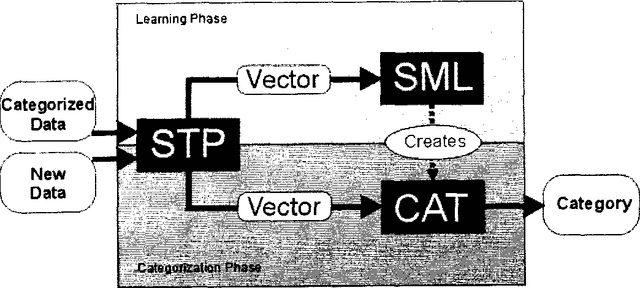

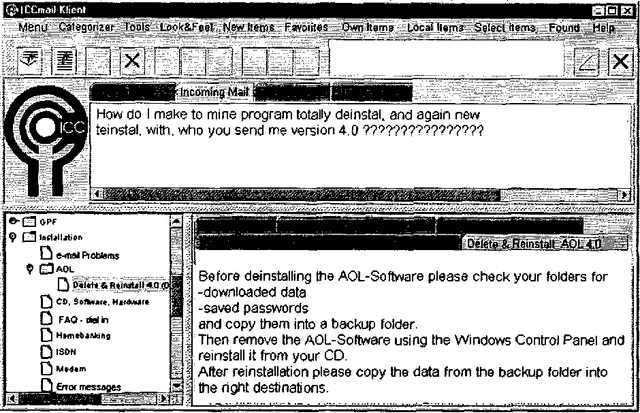
Abstract:Customer care in technical domains is increasingly based on e-mail communication, allowing for the reproduction of approved solutions. Identifying the customer's problem is often time-consuming, as the problem space changes if new products are launched. This paper describes a new approach to the classification of e-mail requests based on shallow text processing and machine learning techniques. It is implemented within an assistance system for call center agents that is used in a commercial setting.
* 8 pages with 2 figures
A Flexible Shallow Approach to Text Generation
Dec 16, 1998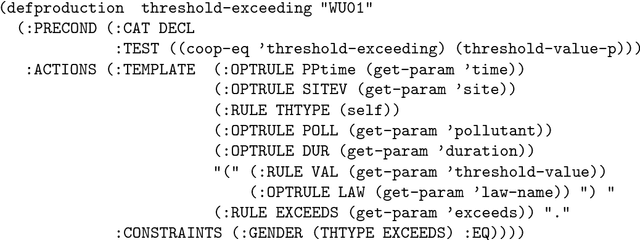
Abstract:In order to support the efficient development of NL generation systems, two orthogonal methods are currently pursued with emphasis: (1) reusable, general, and linguistically motivated surface realization components, and (2) simple, task-oriented template-based techniques. In this paper we argue that, from an application-oriented perspective, the benefits of both are still limited. In order to improve this situation, we suggest and evaluate shallow generation methods associated with increased flexibility. We advise a close connection between domain-motivated and linguistic ontologies that supports the quick adaptation to new tasks and domains, rather than the reuse of general resources. Our method is especially designed for generating reports with limited linguistic variations.
* LaTeX, 10 pages
Natural Language Dialogue Service for Appointment Scheduling Agents
Feb 11, 1997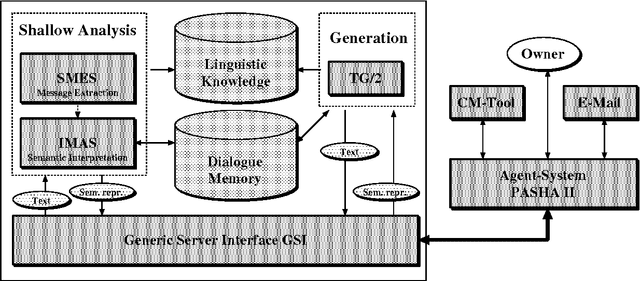
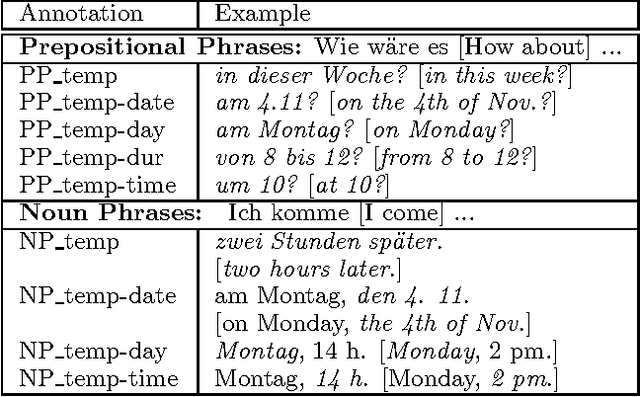
Abstract:Appointment scheduling is a problem faced daily by many individuals and organizations. Cooperating agent systems have been developed to partially automate this task. In order to extend the circle of participants as far as possible we advocate the use of natural language transmitted by e-mail. We describe COSMA, a fully implemented German language server for existing appointment scheduling agent systems. COSMA can cope with multiple dialogues in parallel, and accounts for differences in dialogue behaviour between human and machine agents. NL coverage of the sublanguage is achieved through both corpus-based grammar development and the use of message extraction techniques.
* 8 or 9 pages, LaTeX; uses aclap.sty, epsf.tex
Best-First Surface Realization
May 06, 1996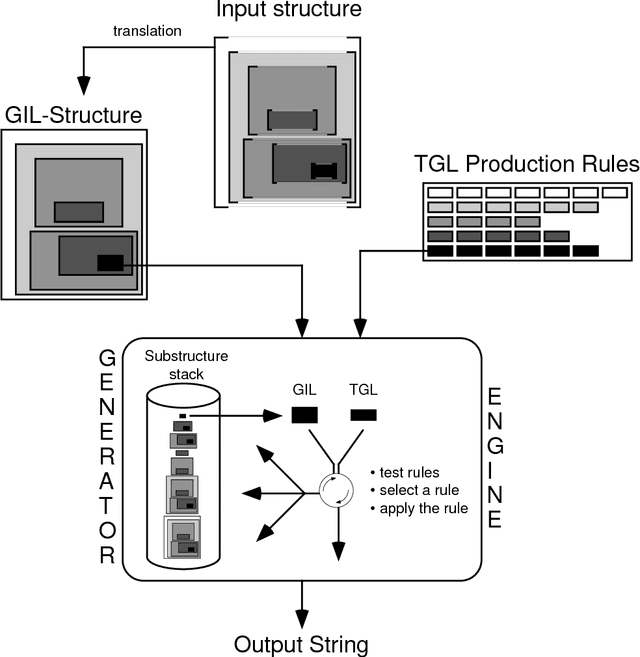

Abstract:Current work in surface realization concentrates on the use of general, abstract algorithms that interpret large, reversible grammars. Only little attention has been paid so far to the many small and simple applications that require coverage of a small sublanguage at different degrees of sophistication. The system TG/2 described in this paper can be smoothly integrated with deep generation processes, it integrates canned text, templates, and context-free rules into a single formalism, it allows for both textual and tabular output, and it can be parameterized according to linguistic preferences. These features are based on suitably restricted production system techniques and on a generic backtracking regime.
DISCO---An HPSG-based NLP System and its Application for Appointment Scheduling
Jun 30, 1994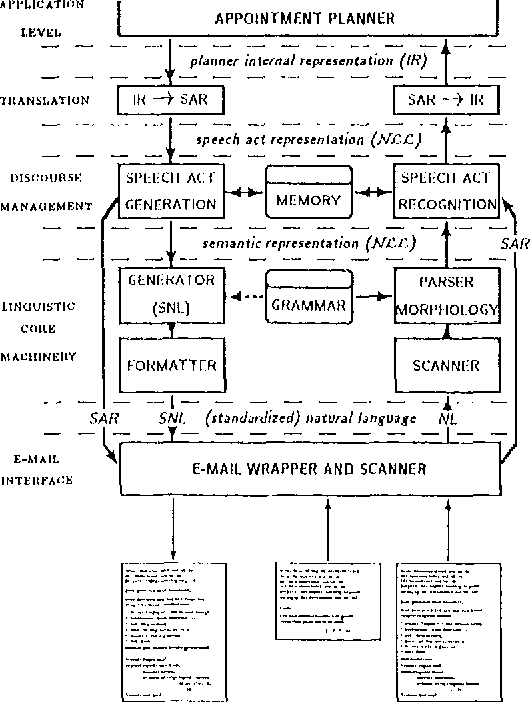
Abstract:The natural language system DISCO is described. It combines o a powerful and flexible grammar development system; o linguistic competence for German including morphology, syntax and semantics; o new methods for linguistic performance modelling on the basis of high-level competence grammars; o new methods for modelling multi-agent dialogue competence; o an interesting sample application for appointment scheduling and calendar management.
 Add to Chrome
Add to Chrome Add to Firefox
Add to Firefox Add to Edge
Add to Edge